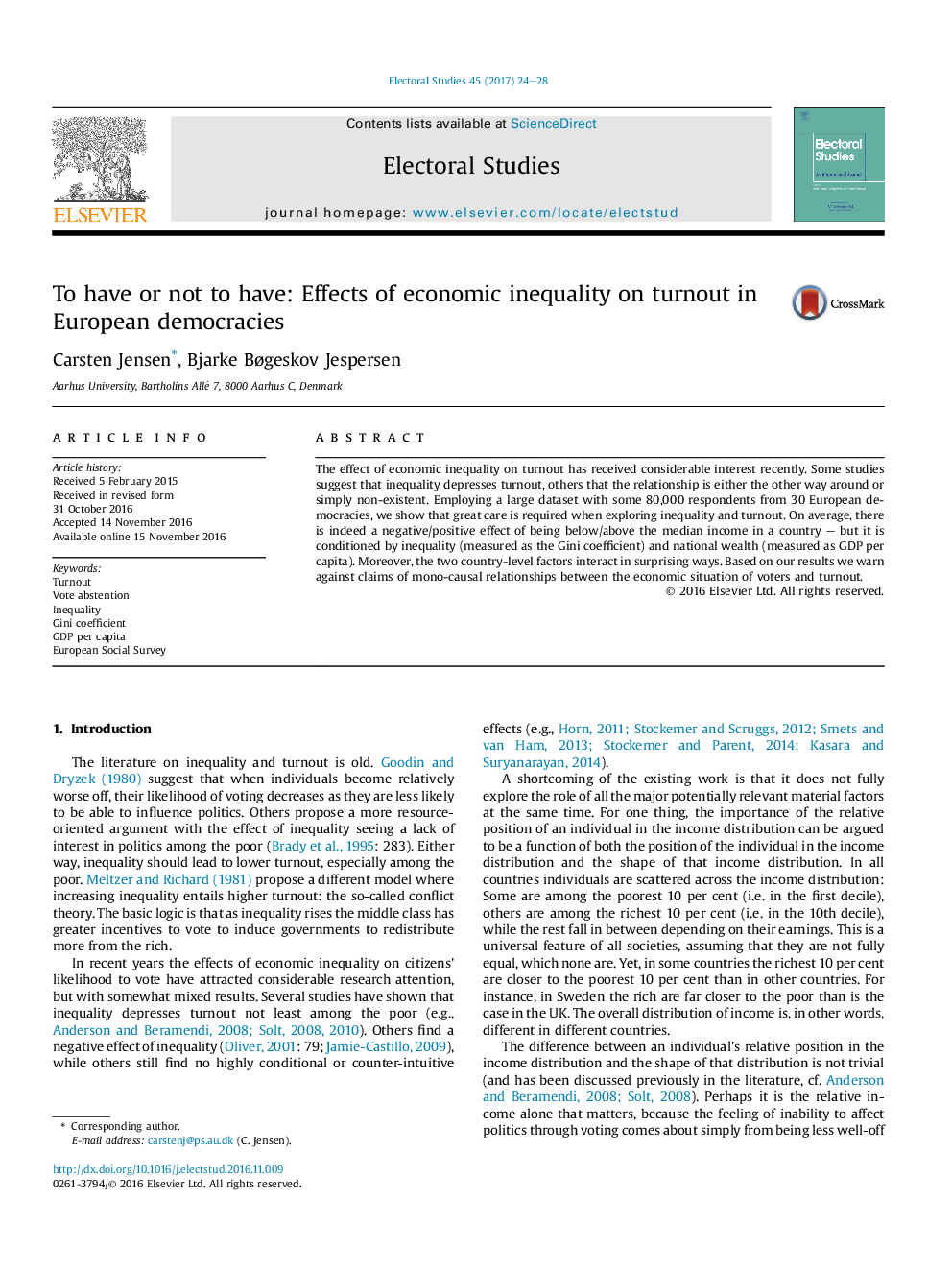| Article ID | Journal | Published Year | Pages | File Type |
|---|---|---|---|---|
| 5115540 | Electoral Studies | 2017 | 5 Pages |
â¢Employing a dataset from 30 European democracies, we explore the connection between inequality and turnout.â¢On average there is a negative/positive effect of being below/above the median income in a country.â¢The effect is conditioned by overall inequality and wealth.â¢We warn against claims of mono-causal relationships between inequality and turnout.
The effect of economic inequality on turnout has received considerable interest recently. Some studies suggest that inequality depresses turnout, others that the relationship is either the other way around or simply non-existent. Employing a large dataset with some 80,000 respondents from 30 European democracies, we show that great care is required when exploring inequality and turnout. On average, there is indeed a negative/positive effect of being below/above the median income in a country - but it is conditioned by inequality (measured as the Gini coefficient) and national wealth (measured as GDP per capita). Moreover, the two country-level factors interact in surprising ways. Based on our results we warn against claims of mono-causal relationships between the economic situation of voters and turnout.
